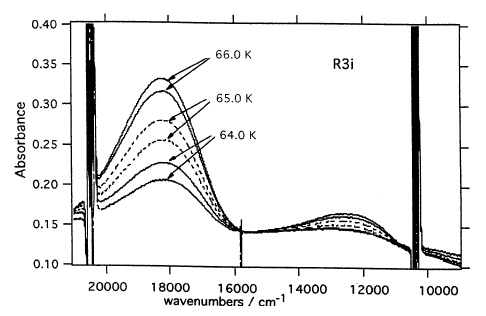-
Quasi-static nature of the light induced thermal hysteresis in [Fe(ptz)6](BF4)2 spin-transition solid
J. Jeftic, M. Matsarski, A. Hauser, A. Goujon, E. Codjovi, J. Linares and F. Varret
Polyhedron, 20 (11-14) (2001), p1599-1606


DOI:10.1016/S0277-5387(01)00660-X | unige:3510 | Abstract | Article HTML | Article PDF

The quasi-static nature of a light induced thermal hysteresis was studied on the spin-transition compound [Fe(ptz)6](BF4)2, by means of optical spectroscopy and magnetic measurements in the temperature interval between 10 and 80 K. Various experimental procedures are discussed in relation to the competition between the two processes considered, namely the photoexitation and the high-spin→low-spin relaxation. A detailed discussion of the experimental parameters, which should be considered in order to avoid erroneous interpretations of LITH, is given.